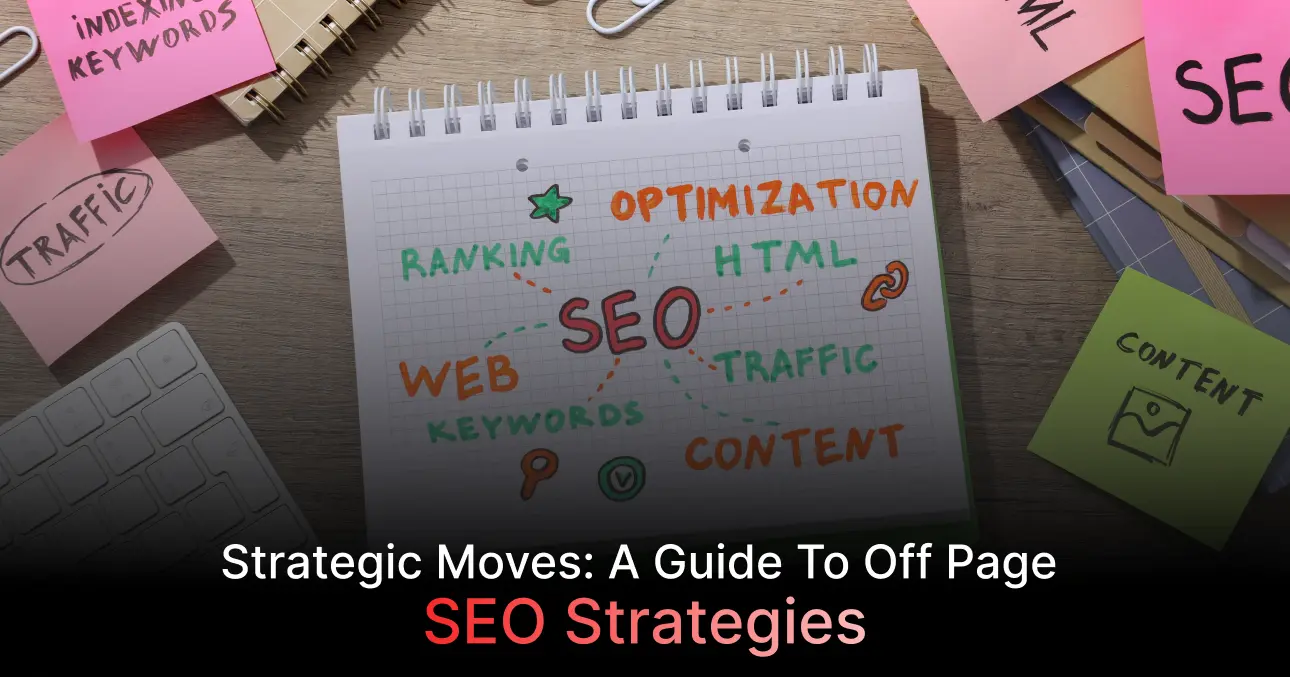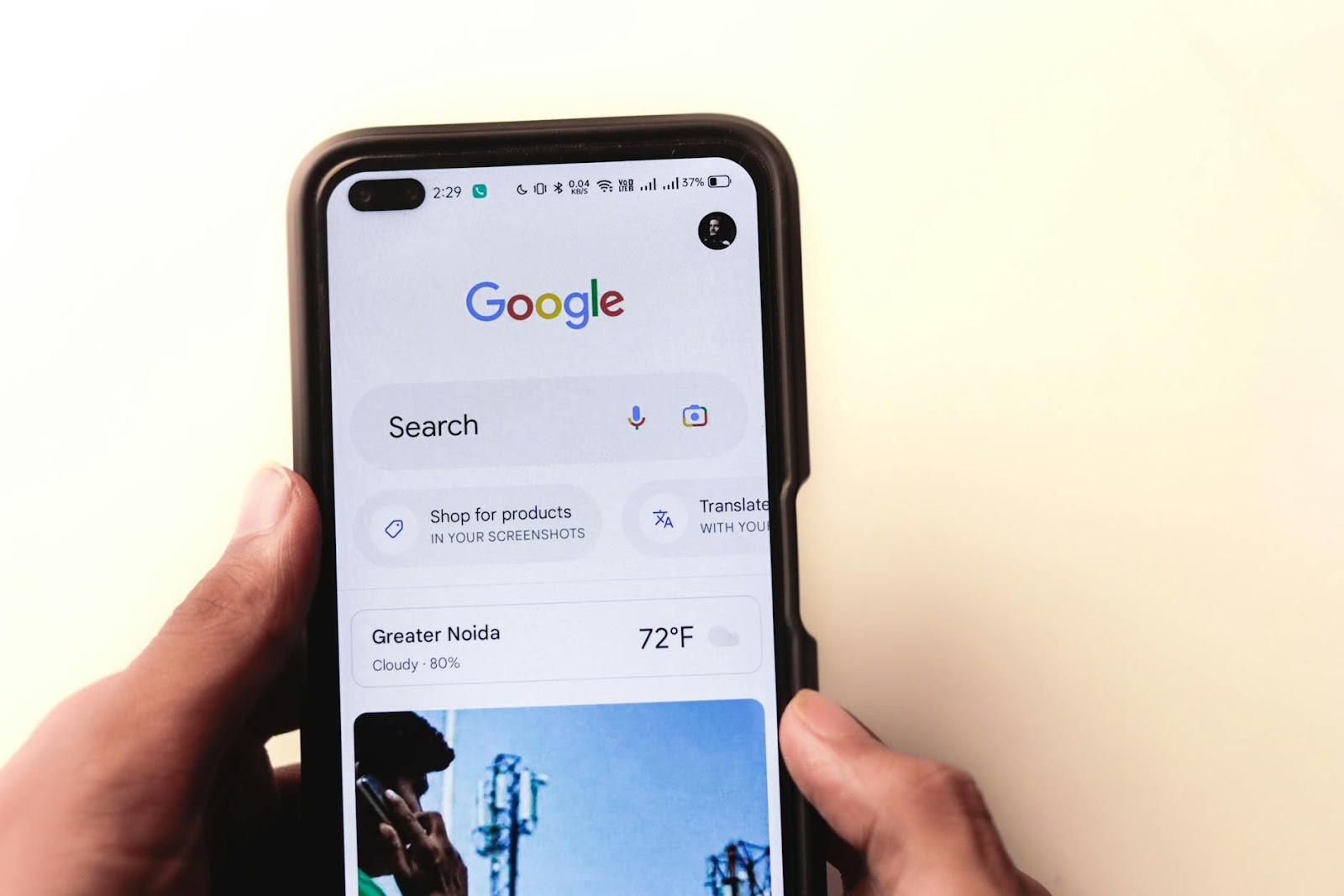Off Page SEO Strategies: Technical Guide for Site Authority and Improved Rankings
Building strong site authority doesn't happen by accident. Off page SEO strategies give your website the trust and recognition it needs to stand out in Google’s search results. These methods focus on what happens beyond your own pages—earning mentions, building quality links, and proving your value through third-party signals.
Consistent off page SEO is essential for long-term search growth and stable rankings. It’s how top-performing sites build credibility and prove they deserve higher placement. If you want to see lasting results from your SEO efforts, mastering these strategies is a must. For a detailed look at effective off page tactics, check out this guide to Off-page SEO strategies.
Understanding Off Page SEO: Definition and Core Elements

To compete for top rankings, a website must show more than just on-page expertise. Off page SEO strategies play a central role in building the authority, trust, and relevance a site needs for better positions in search results. By focusing on tactics outside your website, you shape how search engines and users view your brand. The impact is often felt through stronger site authority, higher organic traffic, and lasting credibility.
Relevancy

Off page SEO refers to actions taken outside your own site that affect your rankings in search. Unlike on-page work—such as optimizing keywords or improving site speed—off page SEO is all about building relationships, earning mentions, and attracting quality backlinks from other trusted domains. These external actions act as "votes of confidence" for your content and expertise.
Key activities include:
-
● Backlink acquisition from reputable sites.
-
● Strategies to boost social media engagement and shares.
-
● Brand mentions, reviews, and citations across the web.
-
● Trust-building efforts, like appearing in curated resource pages or expert roundups.
This outward focus signals to search engines that your website is an authority worth recommending.
The Difference Between Off Page and On-Page SEO
On-page SEO covers everything you control on your website, such as:
-
● Content quality and keyword targeting.
-
● Meta titles and descriptions.
-
● URL structure and internal linking.
-
● Mobile optimization, images, and code.
In contrast, off page SEO is influenced by how the wider online world interacts with your site. While on-page work lays a strong technical and content base, off page SEO builds your reputation and expands your reach.
To see how these parts work together, review tips on how to improve website SEO conversions.
Why Off Page Activities Matter
Search engines want to surface the most trusted and relevant results. Off page SEO strategies measure this by looking at:
-
● How many other sites link or refer to yours.
-
● The quality and relevance of referring domains.
-
● Consistency of your brand reputation and third-party signals.
Sites with strong off page signals climb rankings faster and hold onto their positions longer. High-authority backlinks and consistent mentions boost both domain reputation and organic reach. According to this summary on the importance of off page SEO for website ranking, a recognized site stands out as a leading resource in its field.
For more depth on successful off page tactics, see explanations of off-site SEO strategies and what works.
Core Elements of Off Page SEO
There are several pillars to effective off page SEO:
-
● Backlinks: Quality links from trusted sites are the most powerful off-page signal. Both the authority of the referring domain and the relevance of the content matter.
-
● Mentions and Citations: Brand mentions, even without direct links, help search engines recognize your reputation and topic relevance.
-
● Social Proof: Shares, comments, and engagement on platforms like LinkedIn, Twitter, and Reddit reinforce your value to both search algorithms and users.
-
● Reviews and Ratings: Positive external reviews add trust, especially for local SEO or product/service-focused businesses.
For a comprehensive look at which off page factors truly sway rankings, visit this rundown of top off-page SEO ranking factors.
A solid off page SEO plan blends these activities to grow trust and authority beyond your site’s borders. This foundation is essential for stable, long-term growth in search performance.
Link Building Techniques: The Foundation of Off Page SEO
Link building sits at the core of successful off page SEO strategies. When done with care, gaining high-quality backlinks builds authority, signals trust, and powers long-term growth in search rankings. Not all links are equal, however—how links are acquired is as important as the links themselves. Good link building means following ethical, effective tactics that stand up to Google's scrutiny.
Let's look at proven ways to secure strong links without risking your site's reputation.
Natural Backlink Acquisition
Earning links organically—without asking—shows Google that your content is trustworthy and valuable. These links are given by other websites solely because your work deserves recognition. They are the strongest type of endorsement in the SEO world.
Some proven methods to attract natural backlinks include:
-
● Publishing original research, data, or in-depth guides that others want to reference.
-
● Creating useful tools, infographics, or resources that provide real value to your industry.
-
● Writing in a way that answers common questions or solves real problems for users.
The best natural links come from well-respected, relevant sites. Focusing on content that educates, informs, or innovates increases the chance of being noticed and referenced. For additional tactics, see the Top 10 Methods for High-Quality Backlink Building from ClickBox Agency, which breaks down strategies for ethical and sustainable link creation.
Outreach and Relationship Building
While natural links hold the most weight, proactive outreach helps accelerate your growth and build your network. Relationship-driven link building involves identifying contacts, providing value, and collaborating with trusted publishers for mutually beneficial exposure.
Effective outreach for off page SEO strategies should include:
-
● Personalized emails to respected website owners, suggesting your content as a helpful resource.
-
● Guest posting on industry blogs, contributing original content that includes links back to your site.
-
● Participating in expert roundups, interviews, or podcasts to gain citations and mentions.
Remember, successful outreach focuses on building real connections, not just gaining a link. Providing genuine value to those you contact will strengthen your reputation and increase the likelihood of earning high-quality referrals.
For a deeper dive into the right way to reach out, see this guide to ethical link-building strategies for SEO, which covers guest posting and more relationship-focused approaches.
Avoiding Black Hat Tactics: Warn readers about risky practices like buying links, link schemes, or PBNs
Not all link building is beneficial—and some tactics can do more harm than good. Google’s guidelines explicitly warn against manipulative practices, often referred to as “black hat” tactics.
Risky strategies to avoid include:
-
● Buying links or exchanging goods for backlinks.
-
● Using link schemes, such as excessive cross-linking between unrelated sites.
-
● Creating or participating in Private Blog Networks (PBNs) to manufacture artificial authority.
These shortcuts may yield temporary results, but they carry high risks of penalty and lasting damage to your rankings. Once a site is flagged, recovery is slow and uncertain.
A better approach is to prioritize ethical, sustainable strategies. For example, focus on updating your content, monitoring your backlink profile, and only pursuing links from reputable sources. Regularly review ethical backlink building tips to keep your off page SEO strategies on track.
When you stick with tested, honest techniques, you build a foundation for ranking that lasts—without risk or regret.
Guest Posting, Brand Mentions, and Digital PR
Off page SEO strategies depend on real signals from the wider web. Two of the most effective ways to build those signals are guest posting and earning brand mentions through digital PR. These methods don’t just help you acquire links—they also shape the way both people and search engines view your brand’s authority and visibility.
Benefits of Guest Posting for SEO
Guest posting is writing relevant content for trustworthy websites that reach your target audience. It’s a proven way to build authority in your field, connect with new readers, and earn valuable backlinks—key factors in off page SEO strategies.
When done right, guest posting delivers several technical benefits:
-
● Relevant, high-value backlinks: Backlinks from established websites signal trust and authority to search engines. This supports better search rankings and helps build your site’s reputation.
-
● Expanded reach and new audiences: Your content appears in front of new readers, helping you reach those who may never have found your site otherwise.
-
● Improved referral traffic: Well-placed guest posts can drive targeted visitors who are already interested in your topic or industry.
-
● Demonstrated expertise: Publishing on respected sites positions you as a knowledgeable source in your industry.
Google places a high value on editorially-given links. Earning mentions and inbound links through guest posts is safer and more reliable than link exchanges or any scheme that could harm your reputation. To find technical guidance on effective link-building tactics using guest posting, refer to these top guest posting benefits and our High quality backlink creation tips.
Building a network of guest posts also increases your site’s authority scores (Domain Authority, PageRank equivalents), which in turn pushes your primary content higher in search. Every piece you publish as a guest author should speak authentically to the host’s readers and follow strict content quality guidelines. This is especially important for long-term off page SEO growth.
Earning Brand Mentions and Digital PR

Brand mentions—whether or not they contain a direct link—boost your reputation and trust rating with search engines. Digital PR is the process of earning this coverage by sharing valuable news, expert commentary, or resources with journalists, bloggers, and online communities.
Here’s why digital PR and brand mentions matter for off page SEO strategies:
-
● Trust signals: When authoritative sources talk about your business, search engines see this as a positive ranking factor.
-
● Linkless mentions: Even if your brand is listed without a URL, these references can still strengthen your online authority over time.
-
● Broader recognition: Appearing in industry news, thought leadership pieces, or respected blogs increases your company’s reach and influence.
-
● Opportunities for additional coverage: Journalists and influencers who already know your brand are more likely to feature your content in the future.
Effective digital PR starts with monitoring your mentions and building relationships. By identifying unlinked coverage, you can often reach out and request the mention be upgraded to a full backlink—an efficient way to turn reputation into tangible SEO benefits. Techniques for finding and converting mentions are explored in this guide on how to turn brand mentions earned with digital PR into links.
Finally, digital PR activities—like speaking at events, issuing press releases, and being cited as an expert—are key pieces of an off page SEO strategy that focuses on long-term brand building. For a deep understanding of which strategies build both mentions and reputation for off-page optimization, review what works for successful SEO companies in India.
By making guest posting, brand mentions, and digital PR core parts of your off page SEO strategies, you place your website in front of the audiences and influencers that shape your industry’s future.
The Role of Social Media in Off Page SEO Strategies
Active social media profiles have become essential touchpoints for supporting off page SEO strategies. While social channels themselves do not directly impact rankings with traditional links, they drive important indirect benefits—broader reach, heightened engagement, and signals that reinforce a brand’s authority. By distributing content across popular networks and encouraging meaningful interactions, businesses can boost visibility outside their own website and foster community trust. Let’s break down how social media fits into your off page approach.
Amplifying Content Reach
One of the most consistent benefits of social media is the ability to put your content in front of a much broader audience than organic search alone. Sharing your latest articles, guides, or resources on platforms like Facebook, LinkedIn, Twitter, and Instagram helps build visibility and industry relevance.
When your network engages with these posts, the reach multiplies. Each like, comment, or retweet exposes your message to a new circle of users—some of whom may turn into visitors or create backlinks to your work.
Businesses that align their social outreach efforts with key themes—such as trending news, practical tips, or unique insights—get the best returns on visibility. Ensuring consistent branding and messaging across all channels helps reinforce authority and signals trust to users and influencers alike. According to this overview on the benefits of social media for SEO, tactics like sharing evergreen content, producing short video explainers, or even reformatting blog posts into infographics can make posts more shareable.
The benefits include:
-
● Increased brand mentions outside your domain.
-
● Higher referral traffic as users click through from social posts.
-
● More frequent opportunities for your content to be noticed and cited by other publishers or bloggers.
A well-structured social media plan maximizes this reach, especially when combined with targeted hashtags and timed posts. For a technical approach, see how social profiles support brand authority for external SEO growth.
Encouraging Shareability and Engagement
Social media isn’t just another channel for broadcasting links. It’s a feedback loop—where users can interact, ask questions, or voice opinions about your content. These natural conversations increase the odds of your material being noticed by the right people.
The more engaging your posts are, the greater the chance they will be shared, linked, or referenced elsewhere. “Engagement” in the context of off page SEO strategies means more than a like count—it’s about starting discussions, sparking replies, and inspiring others to participate, which helps your content gain traction in niche communities.
To encourage shareability:
-
● Use clear, actionable headlines when posting links.
-
● Include images, video clips, or graphics to grab attention quickly.
-
● Respond to comments and foster back-and-forth with your followers.
-
● Join relevant groups or forums where your expertise aligns with the needs of the community.
Platforms like LinkedIn, YouTube, and Facebook often deliver strong results for SEO-focused brands. Each platform has unique strengths:
-
● LinkedIn: Professional authority and B2B connections.
-
● YouTube: Long-form video that gets embedded and cited widely.
-
● Twitter: Real-time sharing and hashtag discovery.
-
● Instagram: Visual storytelling that aids brand recall.
According to this guide to the best social media sites for SEO, integrating diverse platforms into your strategy increases the chances of your content circulating back to trusted publishers or industry blogs.
The indirect SEO benefits include higher branded searches, a stronger backlink profile, and increased traffic—all signals that search engines consider when evaluating a website’s authority. Using insights and analytics from each platform helps refine future approach and content types for even better results.
It’s this combination of reach, engagement, and continuous feedback that makes social media a core piece in effective off page SEO strategies.
Content Marketing Outside Your Website
Many off page SEO strategies rely on strong content marketing distributed beyond your own website. Publishing and promoting valuable material across third-party platforms can drive engagement, brand awareness, and authority signals—all crucial for ranking. Distributing articles, videos, infographics, and audio content helps build links, reach wider audiences, and extend your organic reputation far past your domain.
Content Syndication and Guest Content
Syndicating your content means publishing your articles on reputable third-party platforms with a clear link back to your original post. It’s a direct way to expand reach and capture referral traffic while establishing your authority in the field. Guest content, including guest posts and expert commentary, also allows you to feature your expertise on targeted sites. Both practices attract new readers, encourage backlinks, and strengthen your site’s position.
To maximize results, target syndication and guest posting opportunities with reputable publishers in your industry. Avoid low-quality sites that could harm your authority or create duplicate content risks. Choose channels that attract your ideal audience and align with your brand standards. These efforts will help your website gain quality signals and visibility beyond its core channel.
Internal teams and freelance writers can both support scalable outreach. Establish clear editorial guidelines for syndication partners and guest posts to keep messaging consistent. For more on building authority through high-quality content, see How to create content for your website.
Utilizing Videos, Infographics, and Podcasts
Diversifying your content types is essential for success with off page SEO strategies. Publishing videos, infographics, and podcasts on trusted external platforms gives your brand a presence where your audience already spends time. Videos hosted on major networks (like YouTube or industry portals) increase branded search traffic and can earn mentions on blogs or social channels.
Infographics remain a popular tool because they’re easy to share, understand, and credit. When other sites embed your infographic or reference the data, you pick up powerful backlinks. For technical businesses, offering facts in a visual format often gains traction on forums and in research roundups.
Podcasts are another high-impact channel. They allow your expertise to reach engaged listeners via interviews, guest appearances, or your own series. Featuring your insights on relevant podcasts often results in high-quality mentions and natural backlinks. For brands exploring motion content, this resource on explainer video benefits for businesses covers how the right video assets increase engagement and support conversion.
Maintaining Consistent Brand Voice
Every piece of content—whether a guest article, infographic, or podcast interview—should follow a unified brand voice. Consistency supports recognition and trust. A strong, steady voice assures third-party audiences that your expertise is steady and reliable.
Establish internal processes that align your message and visual style, even across different formats and partnership types. Unified communication not only builds authority for human readers, but also improves the trust signals search engines use for rankings.
For agencies or businesses managing creative at scale, these White Label Design Services Tips highlight how to maintain your brand identity across distributed channels and multi-client campaigns.
By pushing quality content out to respected platforms, staying consistent, and picking the right content types, your off page SEO strategies will extend your authority and reach well beyond your website.
Reputation Management, Reviews, and Local Listings
Trust sits at the core of successful off page SEO strategies. Reputation management relies on what customers and other businesses say about you across the web. Positive reviews, strong local citations, and how you respond to feedback directly shape where your business appears in local search rankings. If you want to be found by customers, every detail in your online footprint must show consistency and credibility. Below, learn how each factor connects to off page SEO—and what steps you can take today.
Building Trust Through Online Reviews
Online reviews are public, widespread, and permanent. They impact not only how people see your brand, but how search engines rank your business for local intent. Positive feedback signals relevancy and trustworthiness, nudging your site higher in map packs and local search results.
Online reviews serve as digital word-of-mouth. Search engines factor them into local rankings because they mirror real opinions and highlight service quality. A steady stream of high ratings, recent comments, and honest feedback strengthens your profile against competitors.
Key points about reviews in off page SEO strategies:
-
● Google and major directories give weight to both the number and quality of reviews.
-
● Recency matters—fresh reviews often outrank outdated praise.
-
● Rich, detailed feedback (especially those that mention specific services or products) helps search algorithms connect you with relevant searches.
To manage your reputation and get the most from reviews:
-
● Make it simple for happy customers to leave feedback by sending direct links post-purchase.
-
● Thank reviewers, both positive and negative, for their input.
-
● Feature standout reviews as testimonials on your website and social profiles.
Learn more about why managing your online reputation matters in this guide to reputation management.
Leveraging Local Citations and Listings

Local citations and listings act like a digital business card. They ensure your business shows up wherever customers are searching—on maps, apps, and directory platforms. Consistency in your name, address, and phone number (NAP) across these listings increases confidence for both users and search algorithms.
Citations influence local SEO by validating your business’s existence and legitimacy beyond your own site. These mentions are a core part of off page SEO strategies because they build authority and establish your place in the local community.
Notable types of citations include:
-
● Major directories (Google Business Profile, Bing Places, Yelp, Apple Maps)
-
● Industry or trade platforms relevant to your field
-
● Local business groups, chambers of commerce, or review sites
Actionable steps for effective local listing management:
-
● Claim and verify your major business profiles.
-
● Audit all listings to correct inconsistencies (misspellings, outdated addresses, wrong phone numbers).
-
● Update your NAP details strategically whenever changes occur.
-
● Add business descriptions, hours, and photos to each profile for higher engagement.
Research from BrightLocal on local citations shows businesses with more accurate and widespread listings see better visibility in search.
For a technical breakdown of best practices, see local SEO company services in India for targeted examples and advice.
Handling Negative Mentions Effectively
Negative reviews or mentions can drag down hard-earned rankings if ignored or mishandled. But there’s an opportunity: how you respond to criticism is as visible—and as important—as the review itself. Fast, polite, and solution-oriented dialogue can turn a negative into a showcase of customer commitment.
Negative feedback affects off page SEO strategies because patterns of unresolved complaints can lower search trust and decrease click-through rates from listings. Addressing issues openly proves authenticity.
Key steps to manage negative reviews:
-
● Respond quickly, directly addressing the concern and offering to resolve.
-
● Avoid defensive language—focus on solving, not debating.
-
● Thank the reviewer for their feedback and show willingness to improve.
-
● Document and analyze patterns in negative mentions to inform service upgrades.
Turning dissatisfied customers into success stories can strengthen your online presence. Business leaders can learn more in Forbes’ guide to managing negative reviews.
For actionable scripts and advanced tips, browse this expert resource on responding to negative reviews.
Effective reputation management, combined with accurate listings and proactive review collection, forms a strong pillar of off page SEO strategies. Businesses focused on these areas consistently earn higher placements in local and organic results, unlocking more customer traffic and conversion opportunities. For a step-by-step blueprint on improving local authority, explore local SEO services and strategies tailored to your goals.
Conclusion
Off page SEO strategies require steady, ethical effort. Building real authority starts with quality backlinks, clear brand signals, and trusted reviews from outside sources. Each step compounds—small, smart wins add up to stable rankings and ongoing growth.
Start with focused, high-impact activities suited for your industry. Adapt as new opportunities arise. Success depends on consistent application and careful review of outcomes over time.
For specialized support, working with an SEO expert in India can help refine your approach and keep your off page efforts effective. Sustainable results come from commitment and a willingness to improve as search standards change.
Stay engaged, keep learning, and make off page SEO a continuous process. Your site’s authority and long-term ranking will reflect that investment. Thank you for reading—share your progress or insights below to connect with others on the same journey.
John Click
Digital Marketer | SEO Copywriter | Content Strategist
Experienced digital marketer with a proven track record in creating compelling content that not only engages audiences but also drives conversions and enhances SEO visibility. My expertise extends beyond marketing strategy to crafting persuasive narratives that resonate with your target audience. I combine data-driven strategies with captivating writing to deliver measurable results, ensuring your brand shines in the digital landscape.
John Click
Digital Marketer | SEO Copywriter | Content Strategist
Experienced digital marketer with a proven track record in creating compelling content that not only engages audiences but also drives conversions and enhances SEO visibility. My expertise extends beyond marketing strategy to crafting persuasive narratives that resonate with your target audience. I combine data-driven strategies with captivating writing to deliver measurable results, ensuring your brand shines in the digital landscape.








 Digital Marketing
Digital Marketing


 Digital Marketing
Digital Marketing Digital Marketing
Digital Marketing



